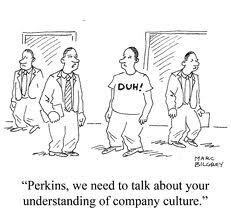

The specific ways in which big data are going to affect your own company culture are dependent on the type of data you have, and what you intend to do with it. Take, for example, a company whose primary income comes from clothing sales. Their compiled data should be comprised of detailed demographic information about their customers; a proper big data analysis will reveal certain consumer trends. The way the company decides to pursue these trends affects its overall culture.
Business Culture and Human Resources
The HR department plays a large part in the culture of a business, because it is here that networking and company population begins. The datafication of HR means that fundamental company networking and internal growth is becoming more personal. HR managers can look at the hard data for a candidate in their business, and analyse the benefits and possible drawbacks of bringing that person on board. What sectors has this person worked in, and for how long? What was company growth during that period?
In terms of HR culture, the way that hiring managers view their existing and potential staff creates a fairly specific, well-defined perception of the company’s M.O. Better data analytics means a more fixed and more specific company culture.
Marketing Culture and Big Data
Your marketing demographics have a lot to do with overall company culture, so in this way, big data can have a big effect. You can’t waste money and time advertising to people who don’t care about your product, after all. Basically, streamlined analytics will force your company to shed inefficient practices and focus only on what brings in customers and makes you money.
Traditional marketing practice teaches business owners to cast a wide net in terms of advertising media: television, radio, print ads, web ads and social media. Big databases and effective analytical schemes mean that now, you can see exactly where your revenues are coming from and which campaigns were a complete waste of time and funds. How does this affect company culture? It forces you to embrace the personality and ideals of your customer. Advertising campaigns will change as the image of the customer changes, and so in the end, the consumer really defines the company.
Finance, Trade and Big Data Analysis
Even banking and trade institutions are experiencing company culture changes thanks to big data analysis. The complex mathematical equations necessary to keep an informed eye on trading patterns and investment patterns can finally be stored, explored and interpreted; this means less wasted money and time for banks and stock specialists.
What does it mean for people in the financial industry? It means that a culture that already allows no mistakes is moving towards acquiring an almost cut-and-dried work method. The high level of detail and specificity of big data in terms of the financial industry is becoming more important and reliable than individual reports. In the future if you don’t follow the data, you might be sued by your own employer or client. Trading and banking culture is becoming even more cutthroat and scientific.
Approaching Big Data Strategies
If your company is considering a move towards big data acquisition and analysis, be prepared to make fundamental changes to your business strategies. Be flexible about the structure and mantra of your business. You may need to change your recruitment strategies to best fit your statistical needs, and change the hours of your best staff so that they are utilized during peak hours. As far as your marketing department is concerned, things will become much more streamlined as ineffective ad schemes are dropped and the most effective are duplicated in other media. If you follow the big data, your culture may well change forever – but it will be for a healthier bottom line.